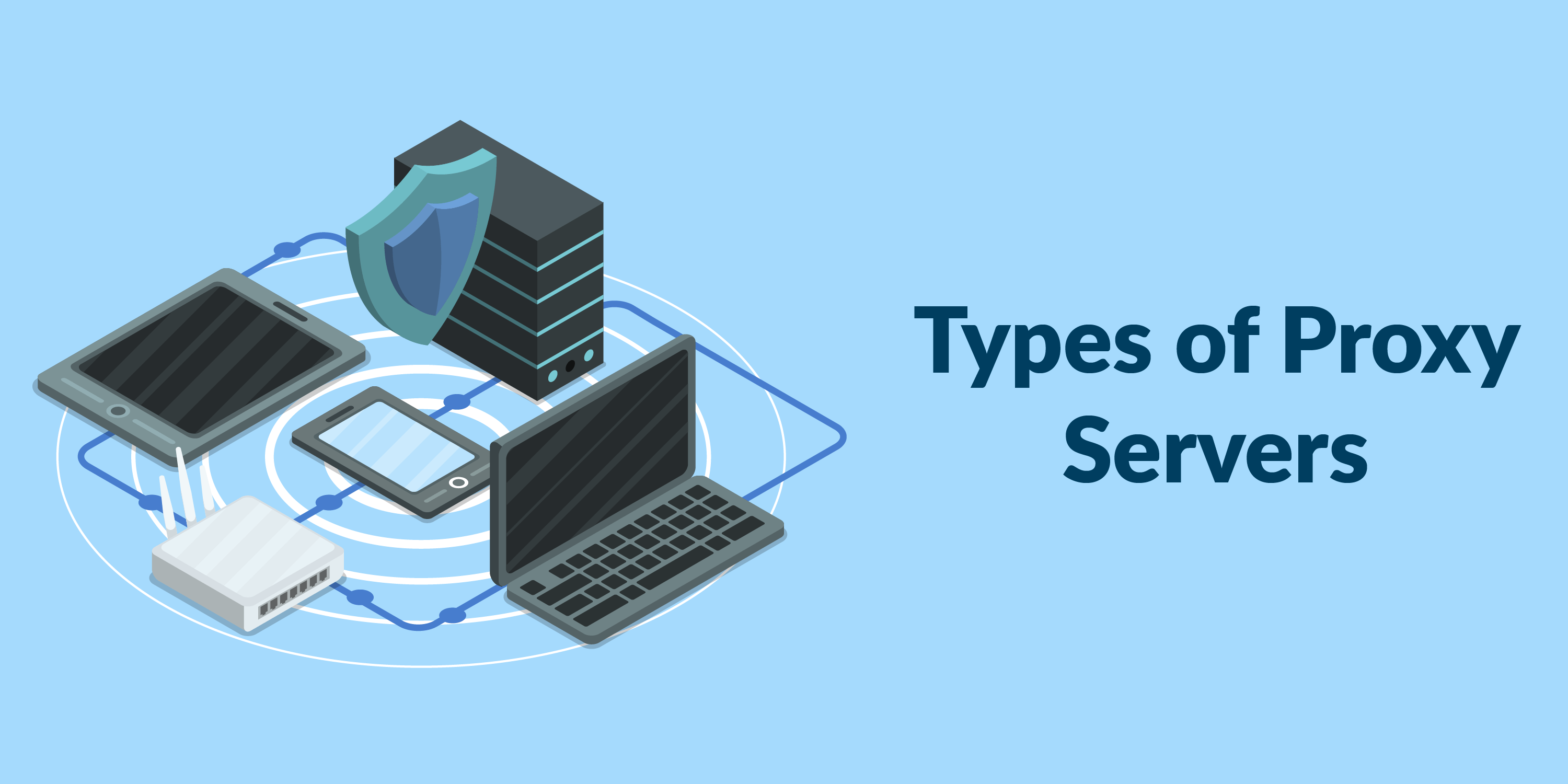
QUICK LINKS:
A proxy server is most commonly referred to as a “proxy”, and it is primarily a computer or a software system that acts as a gateway or intermediary between a local network and another network or server that is much larger than the local network.
Almost always, this larger network is the internet, and when a user sends a request to the internet (i.e. attempts to access a website), the request goes through the proxy server first, and the proxy server sends the request to the internet in behalf of the user. The proxy server then acquires the data and files from the website and sends them to the user’s computer.
So, there is no direct interaction between the user’s computer and the server of the web page that the user is trying to connect to. The website’s server can only see that it was the proxy who sent the request and not the user.
Types of Proxy Servers

There are different types of proxy servers, according to the proxy server configuration. There is a type of proxy that does not make any changes to the user’s requests and the response of the destination webpage. In this case, the proxy only acts as a gateway or a tunnelling proxy.
Forward Proxies
When people talk about proxies, they often refer to this type of proxies. When a user sends a request to access a certain webpage, the forward proxy makes the request to the webpage’s server on behalf of the user. When the other server responds, the proxy obtains the files first before sending it to the user. At this point, the proxy can filter out contents, thereby allowing or denying the request of the user.
When used together with a firewall, forward proxies strengthen the security of a local network. Since proxies act as a single point of access that one can control, it is easier to enforce policies relating to security.
Reverse Proxies
Reverse proxies, as the name implies, do the exact opposite of forward proxies. While forward proxies act on behalf of the requesting client, reverse proxies act on behalf of the destination server (the server of the webpage that the client is trying to access).
The requesting user or client does not have any knowledge that the server is using a reverse proxy. Websites make use of reverse proxies for their file transfer services, and the user does not necessarily know this.
And while forward proxies hide the identity of the user, reverse proxies hide the identity of the webpage server. This makes it difficult for hackers to get into the server and obtain important data and information.
Aside from the anonymity and security that reverse proxies give to servers, it also serves as a load balancer for the servers, which is vital for servers that receive large volumes of requests at a time.
Open Proxies
Open proxies are a type of forward proxies that is accessible to all internet users. Its main use is to provide anonymity to its users as people use it to hide their real IP addresses. However, the use of open proxies to mask a person’s identity is not fail proof. There are a number of methods that can be used to reveal the identity of the user.
Why Use a Proxy Server?

Without proxies, the user’s computer connects directly to the website’s server. Because of this, the server can obtain the following information:
Since a proxy acts as a gateway between the user’s computer and the destination webpage, all network traffic passes through the proxy server. The good thing about this is that proxies can modify the network traffic, thereby enhancing security and privacy. In detail, proxies can do the following:
The use of a proxy server gives anonymity to a person, and more than that, it also provides security. These two – anonymity and security – have become very vital in today’s world as everyone faces the threat of cyber crimes such as ransomware, identity theft, hacking, and the likes.
Conclusion
Most computers are not set up to use a proxy by default. However, because of the benefits the advantages a person can get by using proxies, more and more people are using it for different reasons. The most common use of proxies, however, is to mask the IP address of the user. Perhaps this is to ensure anonymity in browsing the web or to bypass restrictions and censorship.
Hiding the IP address of a user is just one of the many uses of a proxy server, and it is high time that this is known to a majority of people. It is essential also for web scraping.
Also try this Ebook: An Ultimate Guide to Content Curation with Web Scraping.
LimeProxies features include a speed of 1 Gbps, IP refresh, 24/7 customer support, and over 40 locations worldwide. Limeproxies also provides solutions for every niche such as gaming proxies, ticketing proxies, and Socks5 proxies.
Post Quick Links
Jump straight to the section of the post you want to read:


About the author
Rachael Chapman
A Complete Gamer and a Tech Geek. Brings out all her thoughts and Love in Writing Techie Blogs.
Related Articles
The Ultimate Guide to SOCKS proxies
Using SOCKS proxy for your brand is better as it helps you to conduct online activities in a much better manner. Here is the Ultimate Guide to SOCKS proxies
5 Best languages for web scraping
Understanding how important web scraping can be for you, the web scraping languages can help to conduct this process much better.